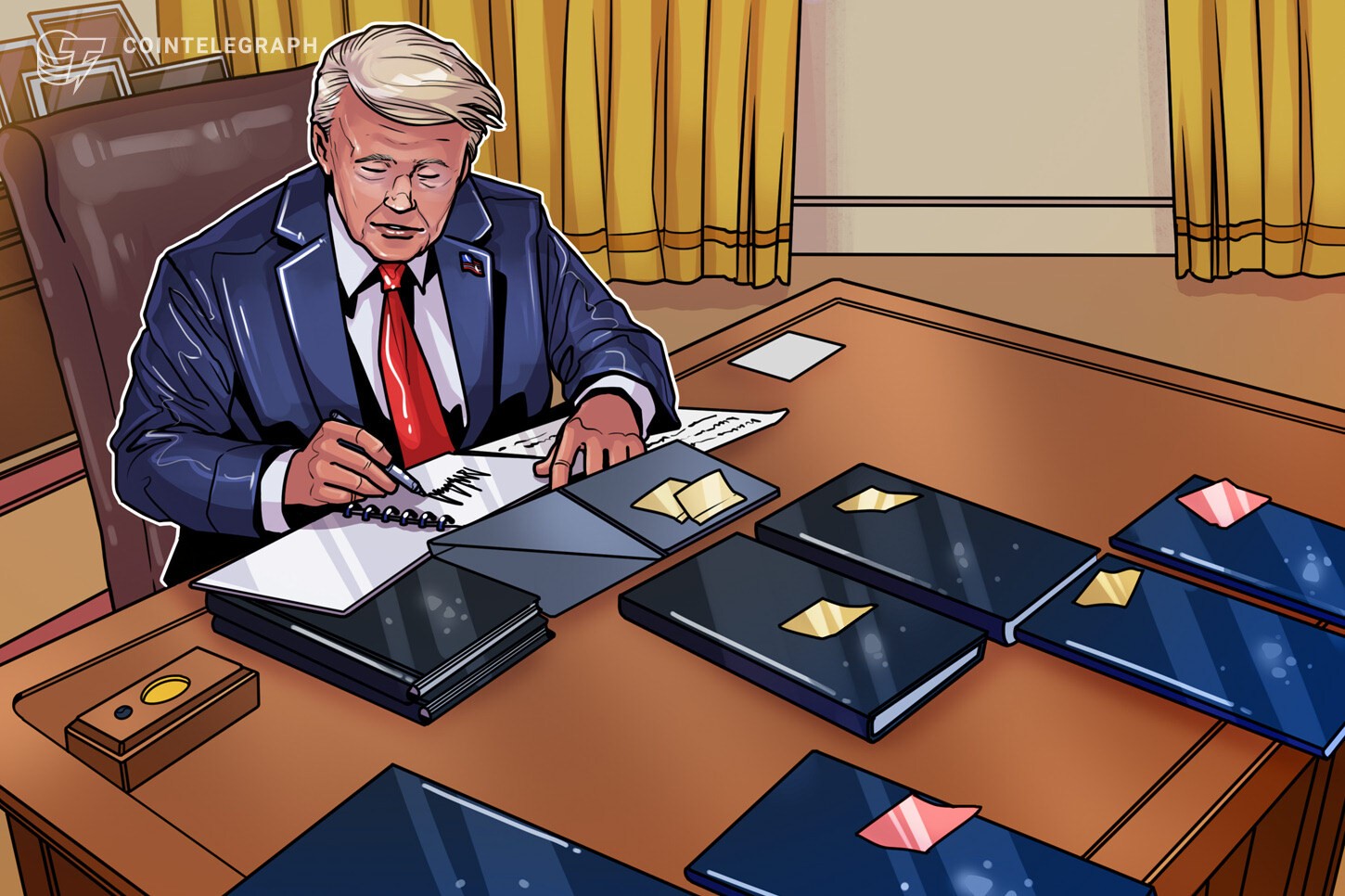US President Donald Trump is set to sign an executive order on Thursday instructing federal bank regulators to identify and fine financial institutions that engaged in “debanking.”
According to Bloomberg on Thursday, citing a senior White House official, regulators will be required to review complaint data, while financial institutions under the purview of the Small Business Administration will be asked to make efforts to reinstate clients who were unlawfully denied banking services.
Debanking has been a key concern among some political groups, who argue that businesses such as gun manufacturers and fossil fuel companies have been denied banking services for ideological reasons.
It was also a common complaint among crypto companies. During the administration of former President Joe Biden, allegations emerged of a new initiative called “Operation ChokePoint 2.0,” which some believed was an attempt to drive the crypto businesses offshore during the 2022 bear market.
Despite the change in tone under the Trump administration, allegations of debanking have persisted.
According to Bloomberg, the executive order will instruct regulators to eliminate the “reputational risk” category from guidance and training materials. Critics say that category was used to unfairly target crypto companies.
Related: From debanking to a banking arms race: The rise of stablecoins
Group of banks attempts to block crypto bank applications
As the Trump administration makes an effort to end debanking, a group of powerful bank associations is attempting to block various crypto companies, including Ripple, from obtaining banking licenses.
According to a letter to the Office of the Comptroller of the Currency (OCC) dated July 17, the American Banking Association, Consumer Bankers Association, National Bankers Association, America’s Credit Unions and Independent Community Bankers of America seek to block banking applications from four digital asset providers, including Ripple and Fidelity.
In their letter, the associations argue that “there are significant policy and legal questions as to whether the Applicants’ proposed business plans involve the types of fiduciary activities performed by national trust banks.” In addition, the associations claim that the “public portions of the Applications do not allow for meaningful public scrutiny.”
Ripple, the creators of cryptocurrency XRP (XRP), applied for a banking license on July 2. The application came days after Circle, the creator of stablecoin USDC (USDC), filed to create a national trust bank to manage its stablecoin reserves.
The applications highlight the growing overlap between traditional financial institutions and native crypto firms, intensifying competition across the financial services industry.
Stablecoin companies, in particular, have introduced new forms of payments, which may clash with the infrastructure provided by traditional banks and credit card companies. The GENIUS Act, a US bill to regulate stablecoins and their issuers, was signed into law on July 18.
Magazine: Legal Panel: XRP win leaves Ripple a ‘bad actor’ with no crypto legal precedent set


